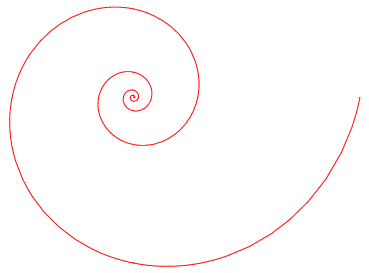Some shapes, including spirals, are self-similar about one point, but nowhere else.
This limited form of self-similarity is one of the most common misconceptions about fractals; the most common manifestation of this is the Russian dolls error.
The author of a book Fractals in Music starts off well but then falls into this mistake:
"Consider a head of cauliflower; if we take it apart piece by piece, we see that the smaller pieces look much like the larger ones. ... If we peel an onion or a head of lettuce we get progressively smaller, yet nearly identical version of the original."
To be clear, onions, lettuce, and Russian dolls are not fractal; they do not contain a minimum of two matching or similar regions in which the arrangement of elements either mirrors or imitates the structure of the object as a whole.
